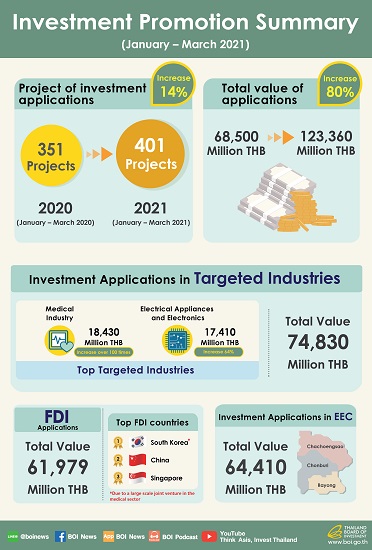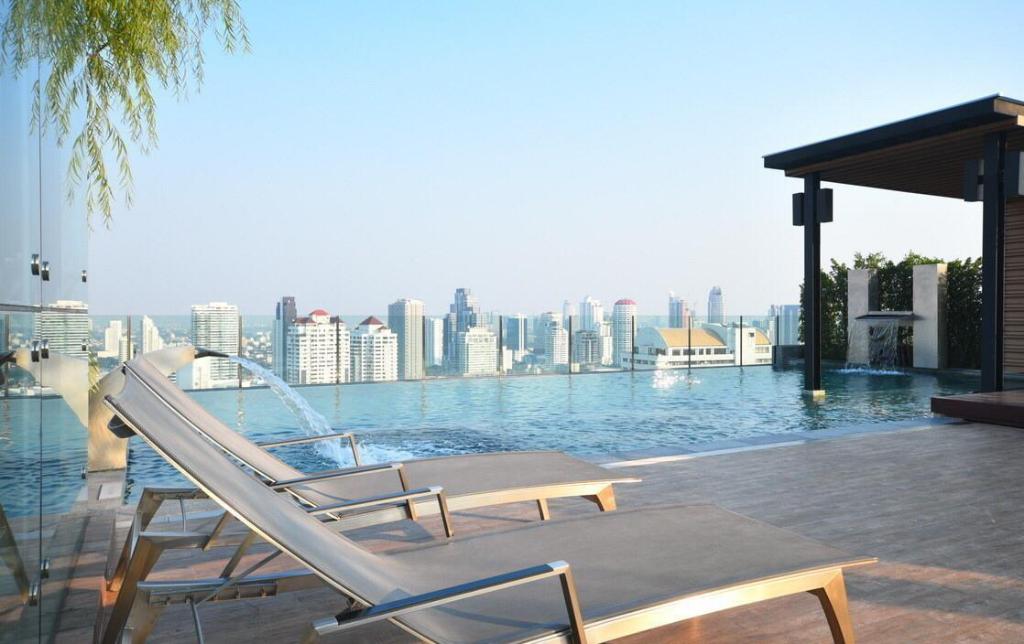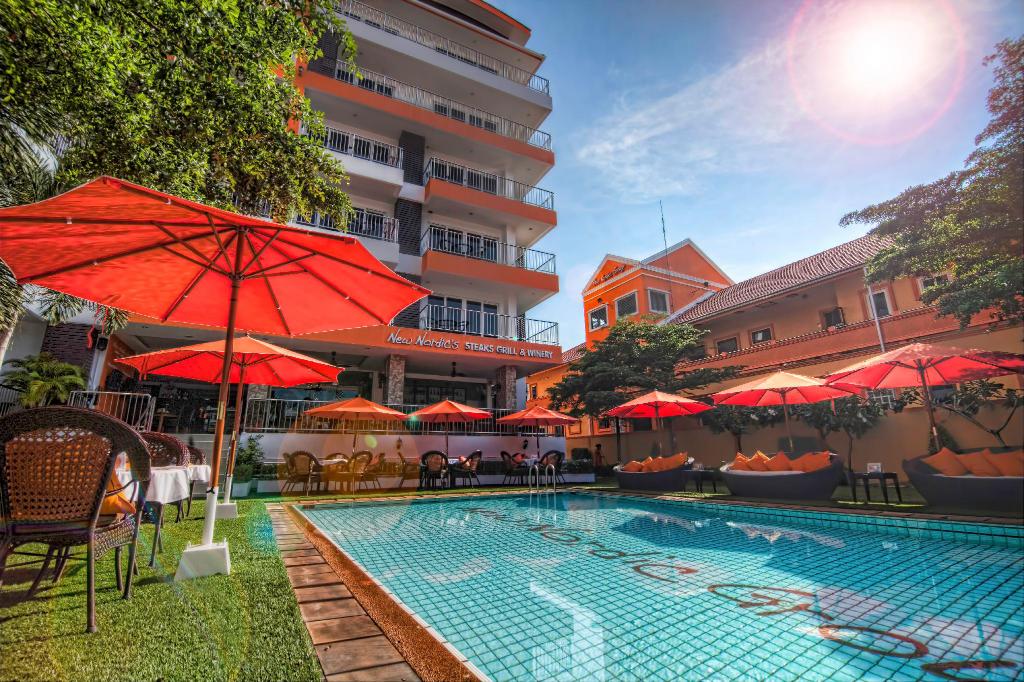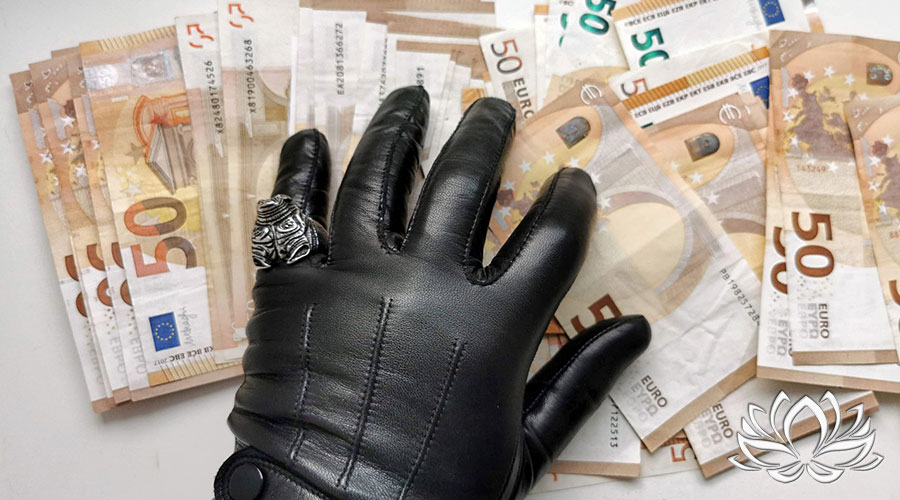In 2021, Thailand is the world’s 53rd-largest country by area, 20th-largest by population, and the 28th-largest in the world by economic size. With a newly industrialized emerging market economy, international investors know the country for its robust growth rates that are being driven by a rapidly expanding population and growing exports around the world.
Overview of Thailand’s Economy
Thailand is Southeast Asia’s second-largest economy with its Top 3 Fast-Growing Industries in automotive, e-Commerce, and manufacturing, and infrastructure, but its per capita income is ranked fourth in the region, after Singapore, Brunei and Malaysia.
Keeping Covid-19 aside, Thailand has rapidly developed economically over the last few decades. The country has been and continues to be one of the most successful countries in the region for attracting Foreign Direct Investment (FDI), due to its numerous advantages for foreign investors looking to do business in Asia, or to invest in real estate in Thailand.
The Thai government continues to stimulate economic growth by encouraging foreign investors to establish their businesses in Thailand. Many policies have been launched to cooperate with foreign investors, and encourage them to invest in real estate. However, investing in Thailand might sometimes hide risks, and scams.

5 policies and measures to attract foreign investment in 2021
The key for a successful investment is knowing the business environment of a country. The main reasons why entrepreneurs find it profitable to invest in Thailand are exposed below:
1. Board of Investment (BOI) Thailand to accelerate investment
The Board of Investment (BOI) Thailand is the principal government agency for encouraging investment in Thailand by offering incentives to eligible companies. The BOI aims at enhancing competitiveness and facilitating investments by offering attractive packages of tax incentives, easing foreign equity restrictions on manufacturing activities and services and waiving restrictions on land ownership by foreign entities.
BOI Thailand promotes investments in specific activities and investment zones, granting both tax incentives and non-tax incentives, including:
1. Permission for foreign investors to own land;
2. Permission to operate under 100% foreign ownership;
3. Exemption from work permit and visa rules;
4. Exemption of import duty on machinery;
5. Corporate tax exemption for up to 8 years;
6. Deduction of transportation, electricity, and water costs;
7. Deduction of project’s infrastructure installation;
8. Exemption of import duty on essential materials used in the manufacture of export products for 5 years;
9. Permission for foreign technicians, experts and their spouse or dependents to work and stay in Thailand.
Read our full guide: “How to apply for Thailand’s board of investment in 2021”

2. Eastern Economic Corridor (EEC): the most ambitious connectivity project
The Eastern Economic Corridor (EEC) is an ASEAN-leading economic zone for industrial, infrastructure, and urban development across the 3 provinces of Chonburi, Rayong, and Chaochoengsao. The initiative was launched in 2018 in order to promote investment in industries that use innovation and high technology.
All investors in EEC zones are entitled to exemption from corporate income tax for up to thirteen years, possibly paired with subsequent 50% reductions, although the length of time they are granted the tax privileges for will vary depending on the business activities and the zone the investment is located in.
To be eligible for EEC promotions, the business must operate in one of the 10 targeted industries encompassing:
- automotive
- smart electronics
- agriculture and biotechnology
- food processing
- tourism
- next-generation industries such as automation and robotics
- aviation and logistics
- biofuel and biochemicals
- digital
- medical and healthcare.
To further support innovation-led business, the EEC investment environment features generous tax and non-tax incentives as well as eased regulatory restrictions.
3. Industrial Estate Authority of Thailand (IEAT)
Industrial operators that locate their projects in a General Industrial Zone (GIZ) or IEAT Free Zone may be granted certain investment incentives without having to apply for BOI promotion:
The Industrial Estate Authority of Thailand (IEAT) is a government agency under the Ministry of Industry, responsible for industrial development and pollution control of industrial operations through established ‘industrial estates’.
- Investors in a GIZ are eligible for the following privileges:
o Permission to own land in an industrial estate
o Permission to bring in foreign skilled workers as well as their spouses or dependents
o Permission to remit money abroad - Investors in IEAT Free Zone are eligible for the following privileges:
o Permission to own land o Permission to bring in foreign skilled workers as well as their spouses or dependents
o Permission to remit money abroad o Industrial operators locating in the IEAT Free Zone may be granted exemption from import and export duties, VAT and excise tax on machinery and construction materials for a factory, and raw materials and supplies used in production

4. International Business Center (IBC)
An IBC provides managerial, technical, supporting, financial management, or international trading services to affiliated foreign or Thai enterprises.
Qualifying IBCs are entitled to a slew of tax benefits applied for through the Revenue Department, including:
- 1. A reduced corporate tax rate on qualifying income for a standard period of fifteen years;
- 2. Tax exemption on both domestic and foreign sourced dividend income derived from affiliates;
- 3. Withholding tax exemption on dividends paid to offshore shareholders and on interest payments to foreign beneficiaries in relation to loans for treasury activities;
- 4. Exemption from specific business tax on qualifying treasury center income;
- 5. Flat personal income tax rate of 15% for eligible expatriate employees.
IBCs promoted by the BOI are also entitled to receive non-tax incentives, such as:
- 1. Permission for 100% foreign ownership of the IBC;
- 2. Visa and work permit privileges for foreign nationals working for the IBC;
- 3. Permission to own land for use in the business of the IBC;
- 4. Machinery used for R&D or in training may receive an import duty exemption.

5. Real estate: Foreign property ownership
When it comes to business and property investments, Thailand is a world of opportunities that has seen interest from investors all over the world.
The Thailand housing price index constantly increased, until relatively recently. This is partly down to the pandemic, the global economic slowdown and competition between developers creating a price-war. A drop in visitors and tourists to the country has also caused the property market to be impacted because there are fewer foreign buyers.
In Thailand, foreigners can own investment real estate under foreign freehold and leasehold ownership. Both these methods allow foreigners to own property in their own name or through a company.
Under Thai-law, foreigners can own up to 49 percent of the built area of a condominium property on a freehold foreign ownership basis. The remaining 51 percent of the properties must then be sold to Thai nationals or Thai entities (for example the Thai limited companies).
However, due to the outbreak of Covid-10, Thailand’s prime minister, Prayut Chan-o-cha recently presented new economic stimulus measures, that have been considered may increase the ownership proposition in condominiums from 49% to 70-80%, while the voting rights in the condominium juristic person are still stipulated as 49%.

Foreigners are not allowed to own land. However, they can lease a condominium or villa for a registered lease term of 30 years with contractual options to renew the lease for multiple subsequent lease terms of 30 years each. This is normally extended by two to three term periods to give 90-120 years.
Here again, the new economic stimulus measures are considering changing the terms of leasehold ownership. Indeed, the duration may be extended from original 30-year ownership and 30-year renewal to 50-year ownership and 40-year renewal. This proposal is to increase confidence for foreigners with long-term living.

What are the risks of investing in Thailand
As in many countries, investing in Thailand can involve certain risks: economical and geopolitical risk, as well as scams that investors should carefully consider before placing any money.
Key geopolitical risks:
- Thailand is susceptible to negative side effects of trade tensions between the U.S. and China, particularly decreased export demand and disrupted supply chains.
- Thailand has a long history of military coups, with 20 constitutions and charters since 1932, but monarchic rule more recently has been subjected to internal challenges, notably by younger protesters.
- Weak inflation remains a concern, hovering at around 1% before and after the pandemic. Factors include declines in public and private investment, and high household debt.
Thailand also provides for foreigners a safe and solid framework for real estate investments which makes the country a perfect target for land developments by commercial or private investors from abroad. However, these buyers should be aware of possible land scams and scammers.
Real estate scams to avoid:
Make sure you conduct a Due Diligence before buying a property in Thailand:
Before you move ahead to buy or acquire a property such as condominium, house, villa, or a piece of land, you must have a third party to conduct the property Due Diligence report.
The Due Diligence confirms the material facts of a sale. This involves going beyond the terms of the contract and to physically inspect the property, complete a title check, review government permits, and review liens on the property.
It is essential to make sure that the property is in good condition. Even if it is a finished construction, some sellers can’t issue the title deed to transfer you the property. Sometimes, the owner or developer may have some legal issue that prevents them from entering into any civil transaction because of a court order that froze all of their properties or their business.
In some cases, real estate promoters sell residences with attractive and unbeatable privileges such as rental guarantee for 10 years, full payment cash back, etc. Unfortunately, they might not be able to fulfill such promises to their buyers. This recently happened with the developer New Nordic, the real estate group headed by the Norwegian Kurt Svendheim, known for several gigantic successful projects in Pattaya and in Phuket.

In fact, if due diligence had been properly carried out, the buyers could have noticed that certain projects were planned in the heart of a national park, therefore building that cannot legally be build on, or even through the review of the financial statements to realize that almost all the cash had been transferred outside the company.
The Key Money, a common scam to avoid in Thailand
When leasing business property in Thailand, another element, other than the Security Deposit and the Rent, sometimes comes into play: the Key Money. For different reasons many people assume charging key money relates to greed on the landlord’s behalf, but this is not always true.
Key Money is the money that is paid by a lessee to a landlord when entering into a lease agreement for a property. It is most common with properties being used as bars, restaurants, clubs, massage shops, hotels and other tourist industry businesses, or premises in tourist areas.
Sometimes a key money is required, sometimes it is not, it depends upon the needs of the landlord. Unlike a Security Deposit which is generally returned in full at the expiration of a tenancy, providing the conditions of the lease agreement are adhered to, Key Money is not refundable. The amount asked for Key Money is not always the same. Landlords assess how much rental income they want for their property over a one year period.
For example, instead of charging a tenant 100,000 baht a month in rent, they may choose to charge the tenant 700,000 baht Key Money upon entering into the lease agreement and every 12 months thereafter, with rent of only 40,000 baht a month.

Sometimes, the lessee has to pay the Key Money once only, upon initial lease commencement, sometime it is recurring, on set dates regardless of when a lease commences or is renewed.
For example, in a bar in Pattaya, the Key Money is paid every 3 years on set dates, so if you buy the bar the day before Key Money is due, it would become your responsibility. Unfortunately, sometimes landlords charging key money actually hope you will fail so you leave and they can collect key money from the next tenant.
Before buying a business in Thailand or entering into a lease agreement for property, you should be advised whether Key Money applies or not and what the conditions of the payments are. It is very important to always check the duration of the remaining lease, and who is the owner and the lessor.
Investors should carefully weigh these risks against the benefits of investing in Thailand before making any investment decision. If you are interested in setting up a company in Thailand, GORIOUX SIAM is here to help you. Contact us for a free consultation : info-siam@gorioux.com




